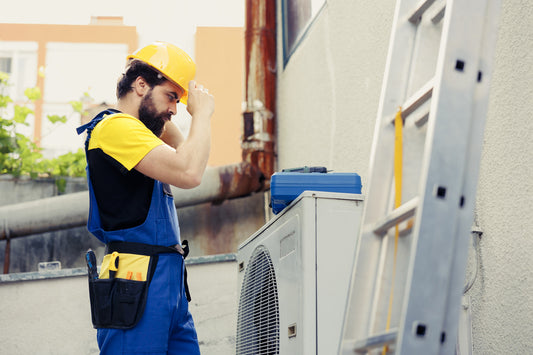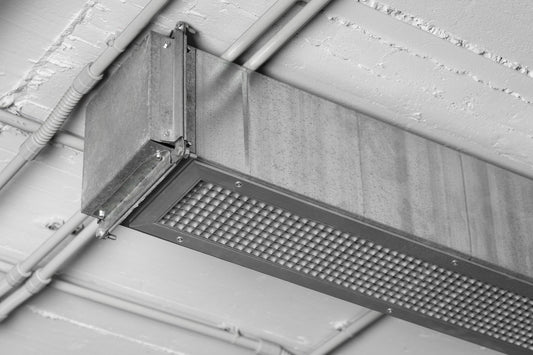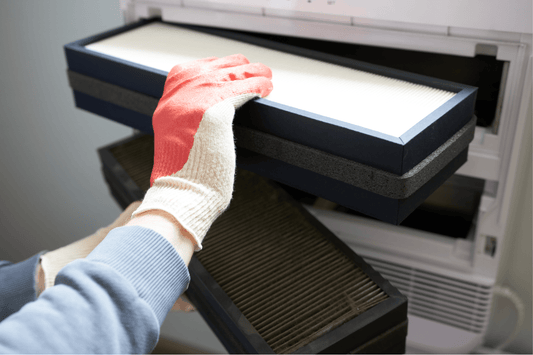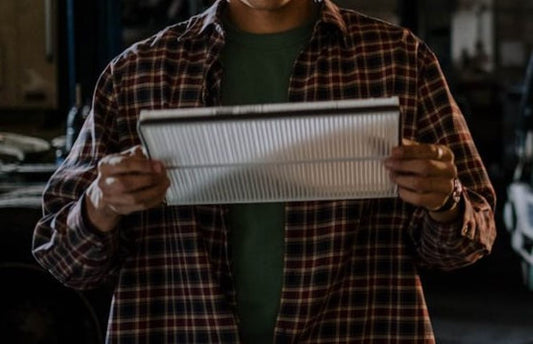The Importance of Clean AC Coils
Keeping your air conditioning unit in top shape is not just about ensuring a cool and comfortable environment in the heat of summer. It's about optimizing the unit's efficiency, prolonging its lifespan, and, importantly, saving on energy costs. At the heart of this maintenance regime is the task of cleaning the condenser coils, a process that can significantly impact the unit's performance. Dirty coils can lead to reduced efficiency, as the unit has to work harder to cool your home, leading to increased energy consumption and higher utility bills. Moreover, the added strain on the unit can shorten its lifespan, leading to costly repairs or replacements.
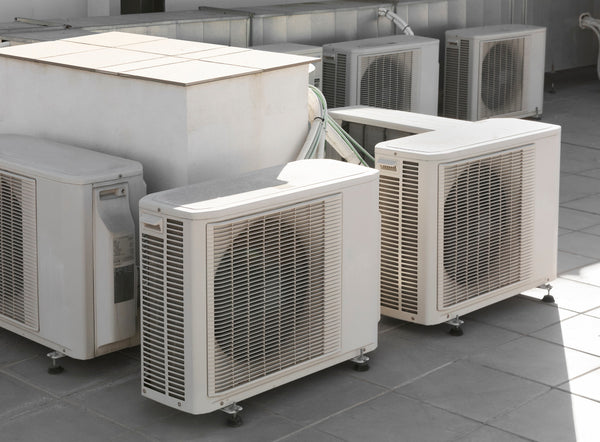
Image by Freepik
Understanding Your AC Unit
Types of AC Units
Air conditioning systems come in various designs, including window units, split systems, and central air systems. Despite their differences, all these systems share one commonality: the need for clean coils. The condenser coil, part of the outdoor unit, plays a crucial role in the heat exchange process, releasing heat from the refrigerant into the outside air. Keeping these coils clean ensures that the process runs efficiently.
Identifying Coil Configuration
Before embarking on the cleaning process, it's crucial to understand your unit's specific coil configuration. AC units can feature a single row of coils or two, which affects how you approach the cleaning process. Identifying the configuration is straightforward: simply remove the unit's cover and observe the coils. This step is vital as it determines the cleaning method and tools you'll need.
Preparing for the Clean
Safety First
The first step in any maintenance task is to ensure safety. This means powering off the unit to avoid any electrical hazards. Always double-check that the power is completely disconnected before proceeding. This precautionary step is crucial to prevent accidents and ensure a safe cleaning process.
Tools You'll Need
A few essential tools can make the cleaning process smoother and more effective. A multi-size nut driver is recommended for safely removing the unit's lid without stripping the screws. A garden hose with a gentle spray nozzle, a homemade or commercial coil cleaning solution, and a stiff bristle brush for scrubbing are among the basics you'll need. These tools are readily available and can significantly enhance the cleaning process.
The Cleaning Process
Mixing the Cleaning Solution
For those opting for a homemade solution, mixing Dawn dish liquid, white vinegar, and lukewarm water can create an effective and eco-friendly cleaning agent. This mixture is economical, easy to make, and surprisingly effective at cutting through the grime and buildup on the coils.
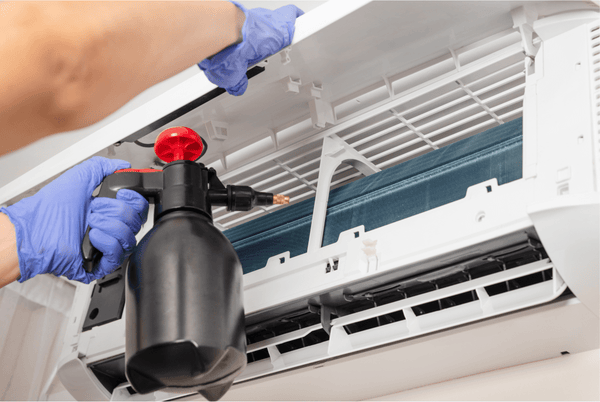
Applying the Solution
With your cleaning solution ready, apply it generously to the coils, ensuring to cover every inch of the coil surface. This application is crucial for breaking down the dirt, dust, and grime that have accumulated over time. Allow the solution to sit for a few minutes to penetrate the buildup before moving on to the rinsing stage.
Rinsing the Coils
After allowing the solution to work its magic, rinse the coils thoroughly with a garden hose. The water should flow from the inside out, pushing debris away from the coils rather than deeper into the unit. This step is vital for ensuring that all the loosened dirt is effectively removed, restoring the efficiency of the heat exchange process.
Additional Maintenance Tips
Straightening Bent Fins
Bent fins on the condenser coil can restrict airflow and reduce the unit's efficiency. Using a fin comb or a similar tool to straighten these fins can significantly improve your unit's performance. This simple step can enhance airflow and ensure that your AC unit operates at peak efficiency.
Ensuring Proper Drainage
Proper drainage is crucial to prevent rust and other water-related issues. Make sure that the drainage system is clear and functioning correctly. This step involves checking the drain pan and pipes for blockages and ensuring they are clean and clear to allow water to flow freely. Proper drainage helps prevent water buildup, which can lead to rust and reduce the unit's lifespan.
The Benefits of Regular Maintenance
Regular maintenance, including coil cleaning, can extend the life of your AC unit, improve its efficiency, and reduce energy costs. It's an investment in your comfort and your wallet. Clean coils ensure that your unit can cool your home more effectively, reducing the need for it to run longer and use more energy. Additionally, regular maintenance can help identify potential issues before they become major problems, saving you money and headaches in the long run.
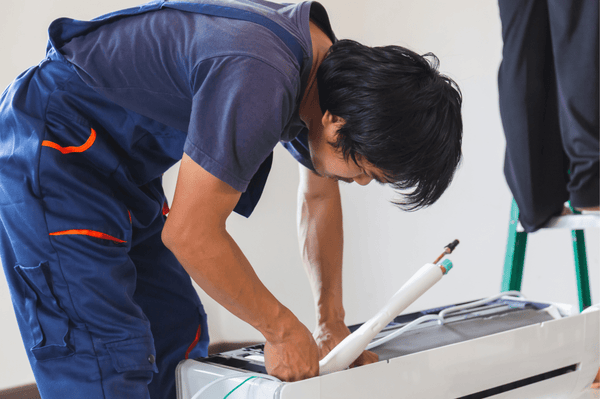
Conclusion
Cleaning your AC's condenser coils is a straightforward process that can yield significant benefits. With the right tools and a bit of time, you can ensure your unit runs efficiently, providing cool, clean air for years to come. Regular maintenance, including coil cleaning, is an essential part of keeping your air conditioning unit in top condition, ensuring it operates efficiently and effectively throughout its lifespan.
FAQs
How often should I clean my AC coils?
It's recommended to clean your AC coils at least once a year, ideally before the cooling season begins. However, if you live in a dusty area or have foliage close to your unit, you may need to clean it more frequently.
Can I use any dish soap for the cleaning solution?
Yes, most dish soaps are suitable for this purpose. However, Dawn is often recommended due to its grease-cutting properties, which can be particularly effective at removing buildup on the coils.
What should I do if my coils are extremely dirty?
If your coils are heavily soiled, you may need to repeat the cleaning process a few times. For extremely stubborn grime, consider using a commercial coil cleaner, but ensure it's suitable for your type of unit and follow the instructions carefully.
Is it necessary to hire a professional for AC maintenance?
While many maintenance tasks, including coil cleaning, can be done by homeowners, some aspects of AC maintenance may require professional expertise, especially if you're experiencing issues with your unit. Regular professional maintenance can also help catch problems early.
How can I tell if my AC unit is not performing efficiently?
Signs of inefficiency include reduced cooling capacity, higher than usual energy bills, and the unit running longer than it used to achieve the desired temperature. If you notice these signs, it might be time for maintenance or a professional inspection.


